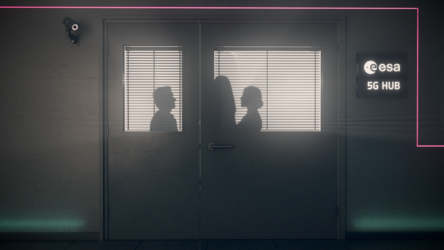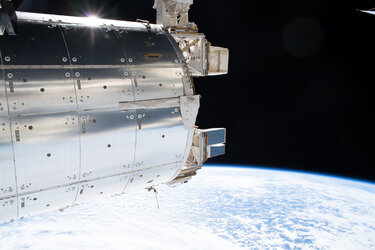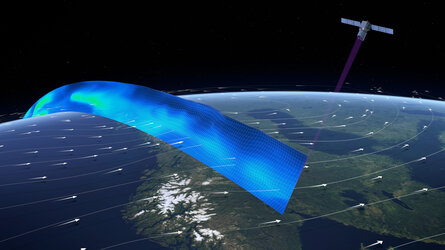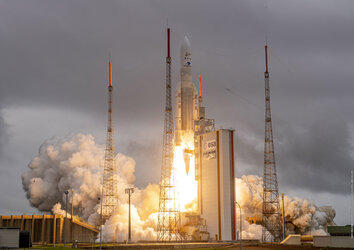British expertise rocket-fuels Europe’s space success
After five decades of outstanding British contributions to ESA programmes, the UK’s impressive entrepreneurial aptitude is helping to shape a new vision for Europe’s space industry.
The UK – which will celebrate Her Majesty the Queen’s platinum jubilee this weekend – has racked up countless achievements with ESA since it played a central role in the agency’s establishment in 1975.
The country’s strong commercial outlook is now helping to fuel ESA’s recently articulated ambition for a rejuvenated European space industry, which sets out to unleash the enormous potential of space to tackle key societal and environmental challenges.

British innovation is playing a vital part in numerous pioneering space activities, including a joint endeavour between ESA and NASA that aims to return martian samples to Earth for advanced analysis.
The UK is also furthering European efforts to unravel the mysteries of the cosmos.
On Christmas day last year, the James Webb Space Telescope – which is a partnership between NASA, ESA and the Canadian Space Agency – was lofted into orbit from Europe’s Spaceport in French Guiana.
British expertise was crucial in developing Webb’s mid-infrared instrument, which will enable astronomers to study the first generations of galaxies in the Universe.

Closer to home, the International Space Station continues to benefit from the UK’s involvement, which is enabled by its ESA membership.
In 2015, British ESA astronaut Tim Peake began a historic mission – called Principia – to the Station. During his six-month stay on the orbital outpost, Peake conducted dozens of scientific experiments and completed numerous outreach activities to inspire young people about space.
Many of the UK’s ESA programmes are orchestrated from the agency’s European Centre for Space Applications and Telecommunications (ECSAT) at Harwell Campus in Oxfordshire, which also serves to promote British space success to a global audience.

Teams at ECSAT supported the development of Eutelsat Quantum, a UK flagship telecommunications satellite that can be completely repurposed while in orbit.
In addition, the facility hosts the UK-backed 5G/6G Hub, which is advancing the deployment of space-enabled telecoms networks and setting the blueprint for future next-generation communications research facilities across Europe.
From ECSAT, ESA is also enabling British firms to address key global challenges by developing space-enabled applications, including satellite-guided medical supply drones and communications technology for driverless vehicles.

Another important element of ECSAT is ESA’s Climate Office, which is the focal point for the agency’s climate-related activities.
The UK has also led the development of several Earth Explorer missions and is backing the upcoming Truths mission, which will support research into the climate by calibrating data collected by other Earth observation satellites.
ESA’s Director General Josef Aschbacher said: “ESA and the UK have a rich history of close cooperation through the UK’s ESA membership. We would like to warmly congratulate Her Majesty the Queen on reaching another historic milestone in Her Majesty’s very remarkable reign.
“I look forward to a bright future for the UK space sector, for the benefit of its people and economy, through a continued strong participation in ESA programmes and activities.”

Head of ESA ECSAT Elodie Viau said: “Harwell Campus is an integral part of the thriving UK space industry and, from ECSAT, I have witnessed the impact of the UK’s entrepreneurial spirit first-hand. Ahead of this significant moment in British history, we would like to congratulate the UK on its outstanding contributions to European space activities.”
The size and health of the British space industry was detailed in a recent UK Space Agency report, which revealed that employment in the industry hit 46 995 in 2020, up from 44 040 in 2019.
UK Space Agency Chief Executive Officer Paul Bate said: “Her Majesty the Queen has witnessed the entire development of the global space industry during her 70-year reign, including many successes for the UK and ESA. It’s fantastic that as we celebrate the platinum jubilee, we can also look forward to the first satellite launches from the UK this summer.
“The UK is proud to be a founding member of ESA, and we will continue to work together on new missions and space capabilities that benefit people on Earth and inspire future generations.”














